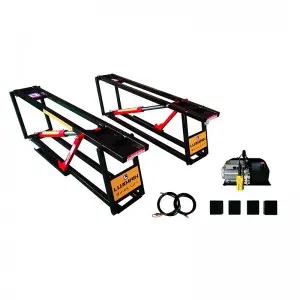Cylinders are one of the most versatile and commonly used shapes in engineering and everyday life. Their simple and efficient design makes them useful in a wide range of applications, from industrial machinery to household items. In this article, we will explore the many uses of cylinders and how their unique properties make them indispensable in various fields.
One of the most common uses of cylinders is in the automotive industry. Cylinder engines, whether in cars, motorcycles, or other vehicles, rely on cylindrical shapes to contain and guide the movements of pistons. Cylindrical engine blocks house multiple cylinders that work together to combust fuel and generate power. The design of these cylinders allows for efficient combustion and energy transfer, making them crucial components in the operation of vehicles.

The Versatility of Cylinders in Engineering and Everyday Life

The Versatility of Cylinders in Engineering and Everyday Life
Cylinders are also essential in hydraulic systems, where they are used to convert fluid power into mechanical motion. Hydraulic cylinders consist of a cylindrical barrel, piston, and seals that work together to create linear motion. These cylinders are found in a wide range of applications, from construction equipment like cranes and excavators to industrial machinery like presses and lifts. The simplicity and reliability of hydraulic cylinders make them ideal for heavy-duty operations where precision and power are required.

The Versatility of Cylinders in Engineering and Everyday Life
In addition to their industrial uses, cylinders also play a significant role in everyday life. For example, many household items like cans, bottles, and jars are cylindrical in shape. The uniformity and stability of cylinders make them ideal for containing and storing liquids, powders, and other substances. Cylindrical containers are also easy to stack and transport, making them convenient for both manufacturers and consumers.
Cylinders are also utilized in the medical field for a variety of purposes. Oxygen tanks, for example, are cylindrical containers that store and deliver oxygen to patients in need. The cylindrical shape of these tanks allows for efficient storage and distribution of oxygen, ensuring that patients receive the necessary treatment. Cylindrical syringes and vials are also commonly used in medical procedures for the accurate measurement and administration of medications.
The unique properties of cylinders, such as their strength, stability, and uniformity, make them indispensable in a wide range of applications. Their simple yet efficient design allows for easy manufacturing and assembly, making them cost-effective solutions for many industries. Whether in automotive engines, hydraulic systems, household items, or medical devices, cylinders play a crucial role in shaping the world around us.
In conclusion, the versatility of cylinders in engineering and everyday life cannot be understated. Their simple yet effective design makes them essential components in a wide range of applications, from industrial machinery to household items. As technology continues to advance, cylinders will continue to play a vital role in shaping the world we live in.quick lift car lift
